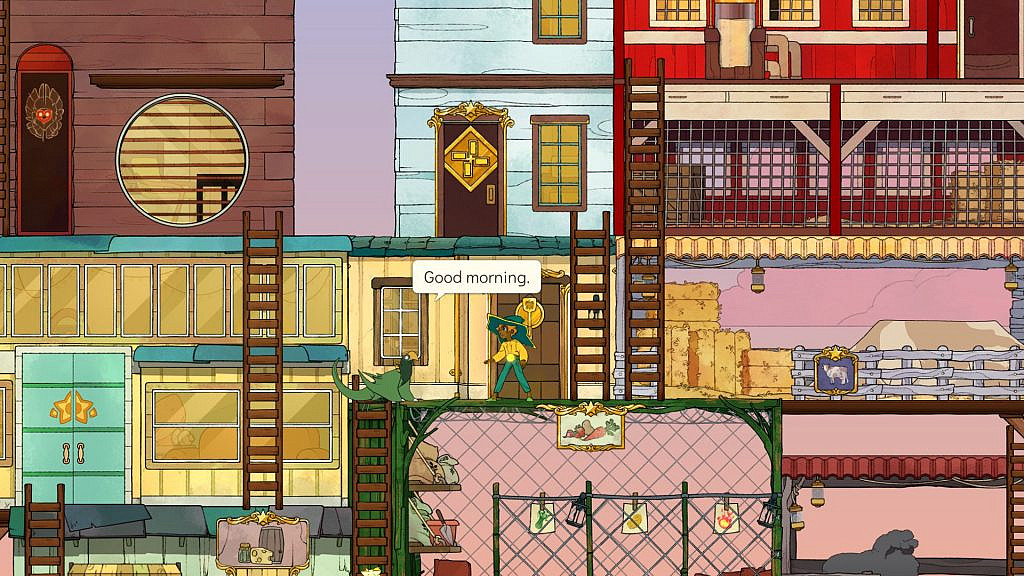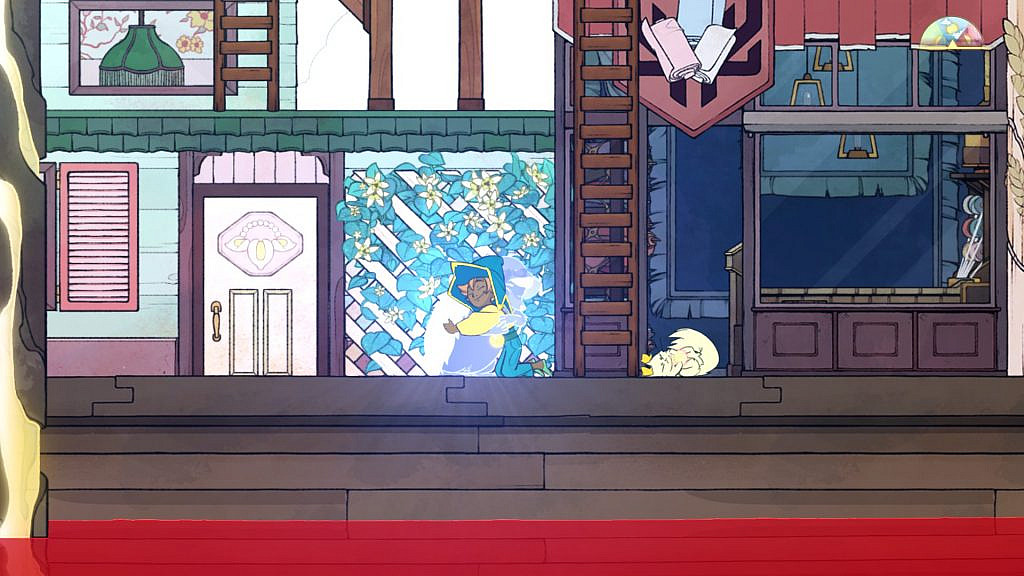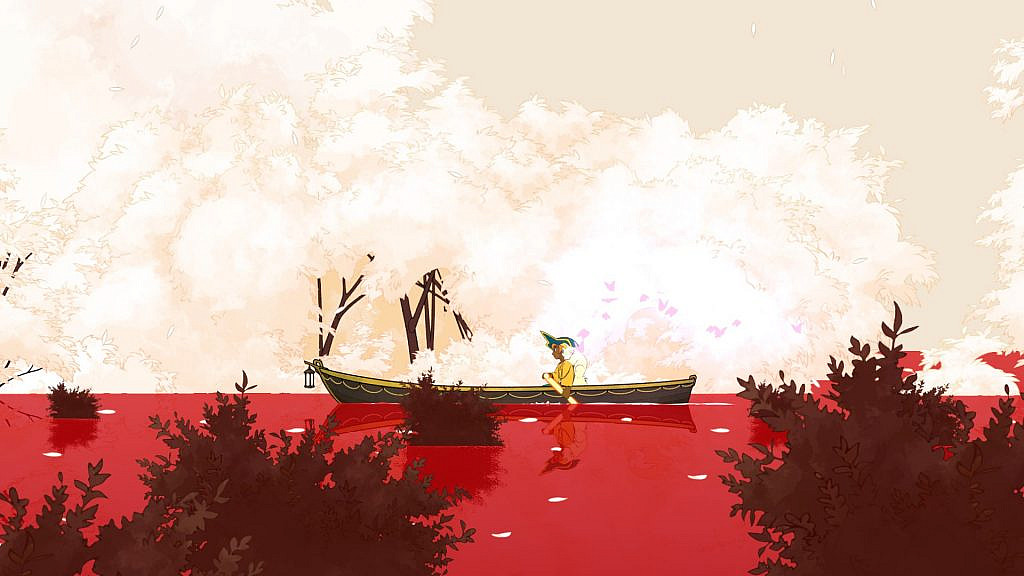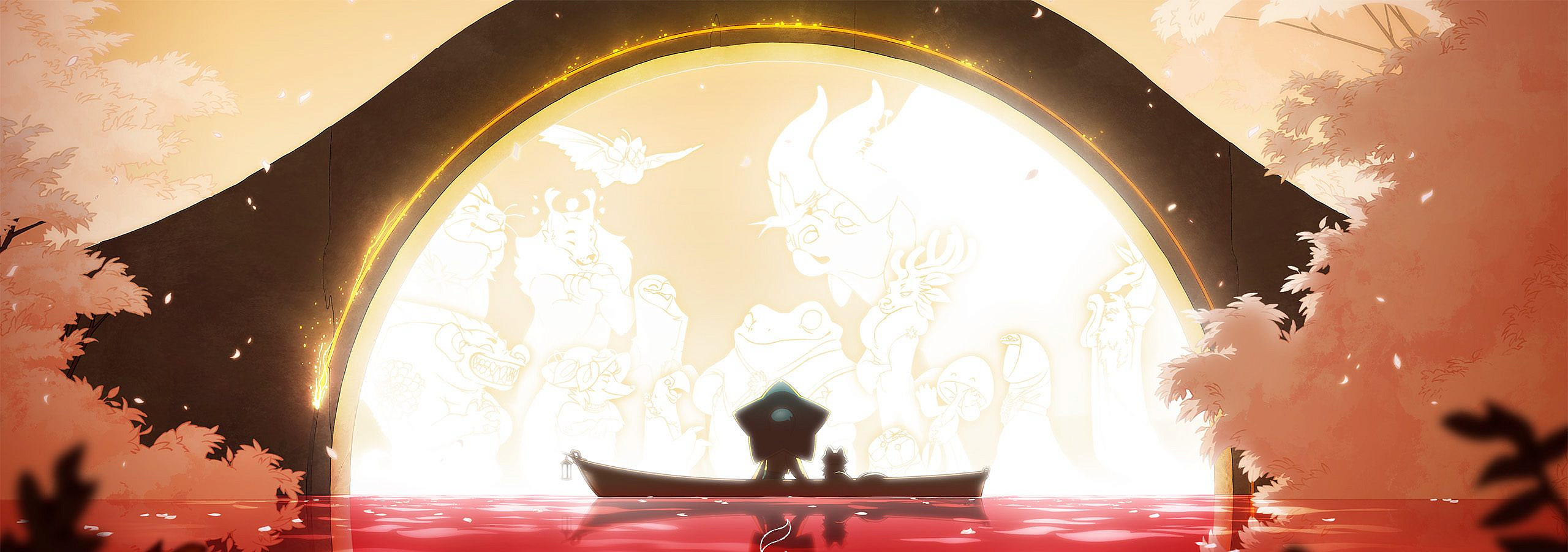Imagine one day waking up and finding yourself laying in a boat, sailing in an unknown and strange place. Before you, you see a mysterious figure dressed in a black cape, leading your boat to a giant semicircular arch bridge. “I’m Charon. The Spiritfarer.” says the mysterious figure. Without any notice, Charon announces that you are the next Spiritfarer that is taking over his place. As Charon explains, you find out that the bridge is the Everdoor – the entrance to afterlife, and your responsibility is to search for the stranded spirits, fulfill their requests and fetch them to the Everdoor when they are ready to pass on. Here at Everdoor, you begin your journey as the new Spiritfarer.
Spiritfarer is a cozy management indie game that deals with the topics of death, grief, and acceptance. Instead of having to worry about leveling up, upgrading weapons and obviously, avoid dying in boss fights, Spiritfarer offers a unique way to deal with death in a game – by caring for the dying spirits. These include cooking for them, building them a house that matches their tastes, building facilities (e.g., sawmill, loom, orchard) and have them teach you how to use them for resources, and finally, my favorite part of the game, hugging the spirits. The spirits will share their interesting and funny stories as well as the challenges they faced during their living moments. All of these are ways for the players to build a deeper emotional connection and resonance with the spirits not just in-game, but also on a personal level.

One of the spirits that had the most significant impact on me is Alice, a sweet, elderly hedgehog lady that reminded me so much of my late grandmother. She would ask me to go on little adventures, teach me how to shear the wool off the sheep, tell me about her passions in fashion and traveling, and her favorite memories with her family. As time went by, I noticed Alice started having trouble moving up and down the ladders, which later requested to have her house moved to the ground level, as well as her deteriorating memory. When I finally sent Alice through the Everdoor, that was when I realized I have not properly addressed and processed my grandmother’s passing, given that it was my first encounter with death in my life at a rather young age. The last hug with Alice at the Everdoor served as a form of closure for me to finally bid farewell to my late grandmother and accept her passing after so many years. A closure I did not realize I needed.
Death has always been a taboo to discuss about, and that many do not know how to deal with their grief nor accept their loss. This is where I find Spiritfarer such a unique game because it allows players to address and process their loss by caring for and sharing moments with the spirits that may remind them of their loved ones. The specially designed mechanism of having to send the spirits to the Everdoor acts as a symbol of farewell and acceptance. Even after Alice’s departure, I found myself unable to move her little cottage from ground level because she holds such emotional significance in me and of my late grandmother. But there is nothing wrong with this because it symbolizes the permanent mark it had in me that I treasure dearly. Spiritfarer subtly taught me about death, grief, loss, and acceptance in a thoughtful yet delicate way.

The amazing soundtracks in Spiritfarer are also worth noting. Thanks to Max LL (Maxime Lacoste-Lebuis), an award-winning films and games music composer, the soundtracks were carefully composed and designed to fit every occasion, location, and cut scene, elevating the gameplay experience and emotional core to another level. I also find it heartwarming that each character has their own soundtrack, which in my opinion, added a more vibrant note to their personalities. One of the soundtracks I keep listening to after completing the game is “Last Voyage”, where it reminds me of every spirit I met along the way and the personal connections I had with them as I sent them to Everdoor. It is a reminder of my journey as a “Spiritfarer”.

As much as I enjoyed it and held the game deeply to my heart, the only downsides that I noticed during my gameplay in Spiritfarer was the grinding for resources that felt repetitive overtime. There were also times where I was stuck in the game because I simply could not figure out the right resources needed to build a facility or upgrade my ship to advance to other parts of the map without looking at walkthroughs or online forums.
Regardless of the downsides I experienced during the gameplay, my final verdict of Spiritfarer: Did I enjoy it? Very much! Was it worth my time? Yes! Do I recommend the game? Absolutely!
Game Info
Publisher: Thunder Lotus Games
Developer: Thunder Lotus Games
Platforms: Steam, Nintendo Switch, PS4, Xbox One
Release Date: 18th August 2020
Genres: Adventure, Simulation, Management
PEGI 12
Pictures:
Feature image from Spiritfarer’s press kit (Thunder Lotus Games, 2020) https://thunderlotusgames.com/press-kits/spiritfarer-press-kit/
Other image is screenshot from Spiritfarer (Thunder Lotus Games, 2020), taken by the author.
